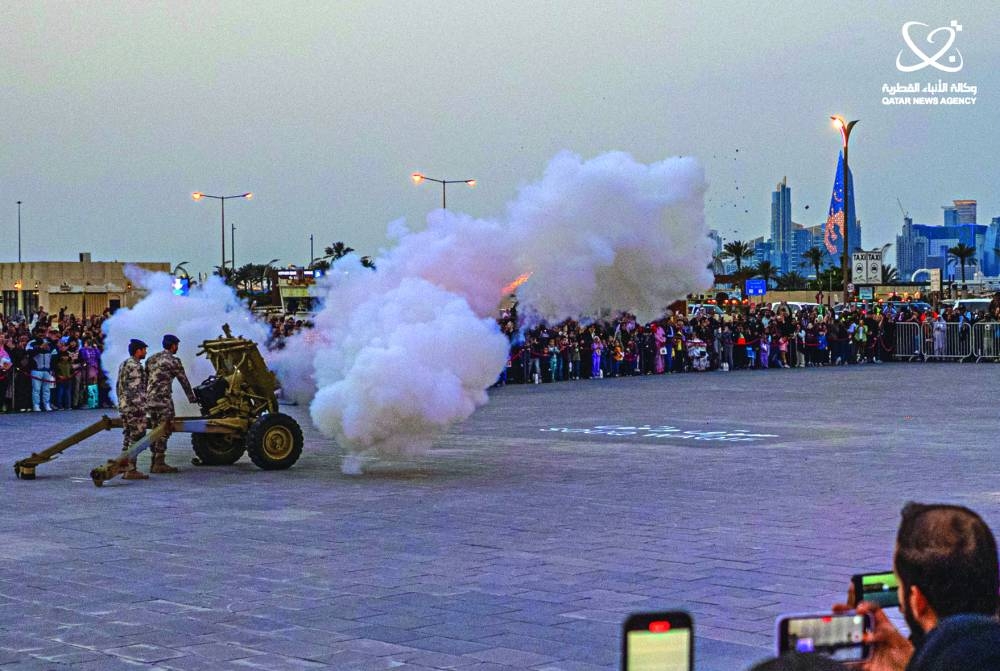For Muslims around the world, Ramadan is a sacred month dedicated to worship and devotion to Almighty Allah, as fasting is a pure act of worship for which only Allah rewards the devoted.
Muslims celebrate the arrival of this holy month with great joy and unique traditions that reflect their cultural and social practices across the diverse regions of the Islamic world. This diversity in celebration is a hallmark of the Muslim community, where individuals also compete in performing various acts of kindness and righteousness during the blessed days of Ramadan.
The activities include reciting the Qur’an, providing Iftar for those who are fasting, giving charity, supporting orphans and the needy, assisting the weak, visiting the sick, and engaging in numerous acts of benevolence.
Ramadan is more than a month of increased worship, but it is also a time for mercy, solidarity, and human co-operation. Muslims demonstrate the highest forms of co-operation and generosity, eagerly performing good deeds in mosques, streets, and homes. Every moment of this holy month is imbued with noble values of altruism and compassion, showcasing the most beautiful examples of community solidarity and giving.
These efforts are carried out with sincerity and dedication, away from any worldly motives, in pursuit of divine reward in a season that is the best of seasons, and days that are the best of days in the sight of Allah. This makes Ramadan a beacon of goodness and generosity every year.
In this context, one of the values that Muslims uphold during Ramadan, following the advice of Prophet Muhammad (peace be upon him), is giving charity to feed the poor, even if it is a small amount. Feeding the poor during Ramadan is one of the most esteemed deeds in the sight of Allah, especially as the holy month offers an opportunity to reap rewards.
The Prophet (peace be upon him) said: “Whoever provides Iftar for a fasting person will receive the same reward, without diminishing the reward of the fasting person at all.” This promise of multiplied rewards encourages Muslims to feed those who are fasting.
The holy month of Ramadan embodies various forms of generosity, with communal Iftar feasts organised everywhere, financial aid provided to those in need, and attention paid to the conditions of the less fortunate. These scenes reflect the greatness of Islam and its compassionate values, contributing to the spirit of social solidarity and strengthening the bonds within the community.
With the arrival of Ramadan, mosques fill with worshippers and visitors engaged in prayer and Qur’an recitation, creating a reverent atmosphere. Many strive to ensure the comfort of mosque-goers, enabling them to perform their worship with ease.
During this blessed month, everyone endeavours to elevate their spiritual zeal and strengthen their connection with Allah, drawing inspiration from the months spiritual blessings to renew their relationship with their Creator and deepen the meanings of piety and devotion in their hearts.
One of the noblest values of Ramadan is the spirit of volunteering to help others, an act of worship whose virtue is not widely recognised. Donating time and effort to serve the needy is considered a form of double charity during this holy month, reflecting the essence of altruism and solidarity. Despite the challenges of fasting and life’s obligations, believers rush to extend a helping hand, whether by collecting and distributing donations or providing Iftar and Suhoor meals to poor families, embodying the values of mercy and generosity that distinguish this holy month.
An invaluable opportunity that Muslims strive to seize during Ramadan is distributing food to fasting travellers, a deeply rooted humanitarian value seldom found in other communities. This practice reflects the spirit of altruism and brotherhood, fostering feelings of support and compassion among people, as strangers become brothers united by the blessings of the holy month. It reinforces the values of solidarity throughout the Islamic world and embodies the meanings of giving in their most beautiful forms.
Muslims also prioritise visiting relatives and friends during Ramadan, adhering to the values of Islam that emphasise social bonds and promote brotherhood within the community. The Prophet Muhammad (peace be upon him) urged this practice, saying, “Whoever wishes to have his provision expanded or his lifespan prolonged should maintain ties of kinship.” The holy month provides a golden opportunity to strengthen family relationships and bring joy to hearts, as close relatives are most deserving of kindness, as guided by our noble religion.
During Ramadan, Muslims emphasise the value of charity as a living model of giving and benevolence, seeking closeness to Allah and obedience to Him. Charity in this blessed month multiplies in virtue and reward, as the Prophet (peace be upon him) when asked “Which charity is best” said “Charity in Ramadan.” Its various manifestations include providing Iftar for those fasting, paying off debts for those in need, supporting those in seclusion for worship, and assisting students and the sick, reflecting the spirit of solidarity that characterises Muslim communities during this holy month.
Undoubtedly, Ramadan is a blessed month filled with goodness and blessings. It renews faith, amplifies righteous deeds, purifies souls, and strengthens the connection with the Merciful. It also fosters co-operation, enhances giving, deepens bonds among people, and spreads mercy and affection among all. These aspects give us hope that goodness will remain in the Muslim Ummah as long as life exists, as the Prophet (peace be upon him) said, “The good remains in me and my Ummah until the Day of Resurrection.” It is incumbent upon every Muslim to use this great month to increase their closeness to Allah, in obedience and love, elevating the values, principles, morals, and behaviours that our noble religion has enjoined. This should not only be in Ramadan but as enduring qualities throughout the year, a constant approach to life, which is the essence of the spirit of Islam.

The Ramadan cannon.. a traditional custom that decorates Souq Waqif during the holy month.
